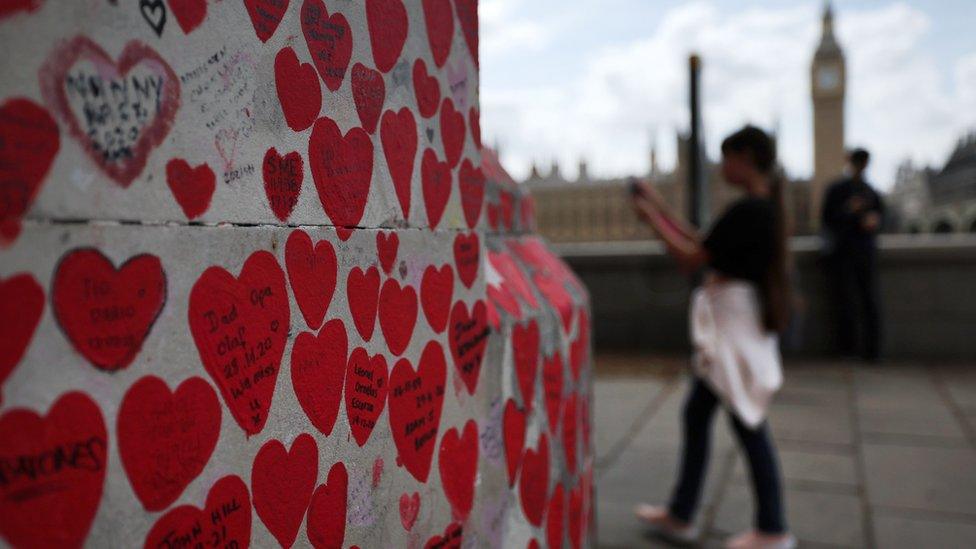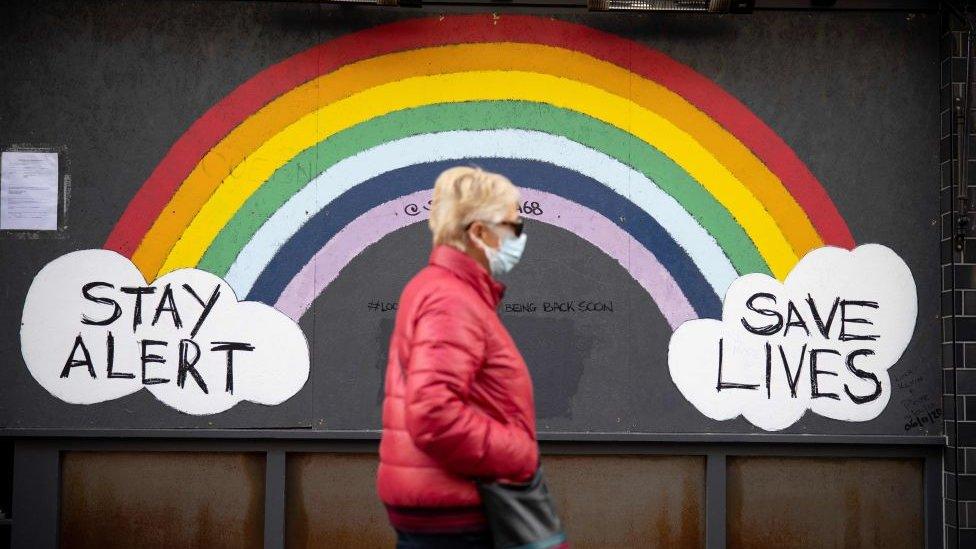Michael Gove says Wales was involved in Covid decisions
- Published
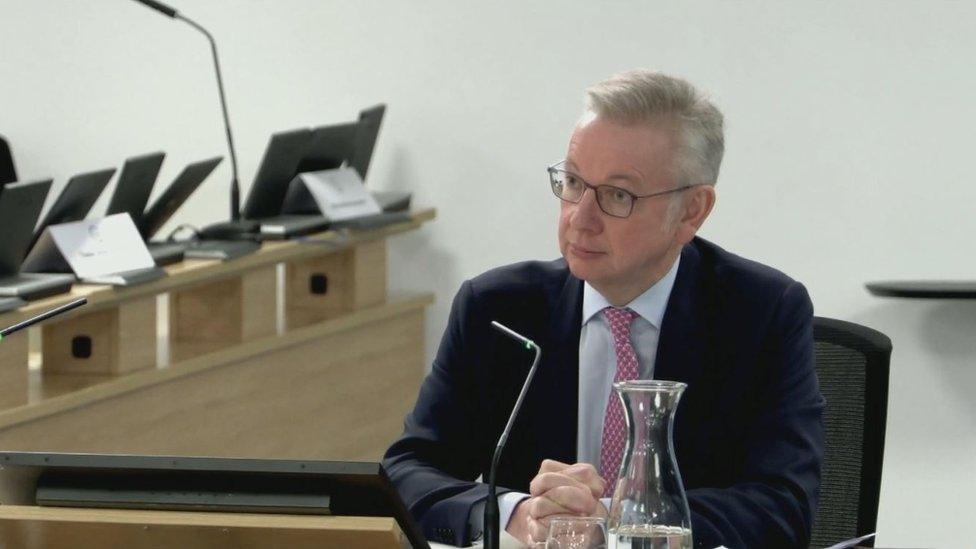
Michael Gove told the inquiry that he had more than 100 meetings with the UK's devolved leaders
A senior UK minister has denied that the Welsh government and other devolved administrations were kept out of the loop during a crucial stage of Covid.
Michael Gove was speaking at the UK public inquiry into the pandemic.
He said there had been a "good" level of engagement with Welsh ministers, but not the level of predictability First Minister Mark Drakeford wanted.
Mr Gove argued that there had been a "diminution but not a halt" to regular contact between May and October 2020.
He also said there should be some public health scenarios where UK ministers could "override" devolved government powers.
His role as Chancellor of the Duchy of Lancaster involved co-ordination across UK government departments and the devolved UK nations.
Counsel to the inquiry, Hugo Keith KC, suggested to Mr Gove that it had taken a very considerable amount of time for a regular system of liaison to be set up.
Mr Keith put it to him that there was a hiatus between May and autumn 2020, when the devolved administrations were to a "very considerable extent kept out of the loop."
"No," Mr Gove replied.
"There were regular calls of a variety of kinds with my officials and officials of the devolved administrations, Covid-O and Cobra and the JMC (governmental committees dealing with the Covid response).
"Simply a range of mechanisms to ensure the devolved administrations.... were part of our broad conversations," he said.
Mr Keith responded quoting Mr Gove's own witness statement that the first ministers were not invited to the key pandemic decision-making body Covid-O on a regular basis until October.
"Was there a hiatus between May and late autumn in which the DAs [devolved administrations] at this political level did not get the same level of access to UK government that they had hitherto and thereafter?" asked Mr Keith.
"Hiatus implies halt. I think there was a diminution, but not a halt," replied Mr Gove.
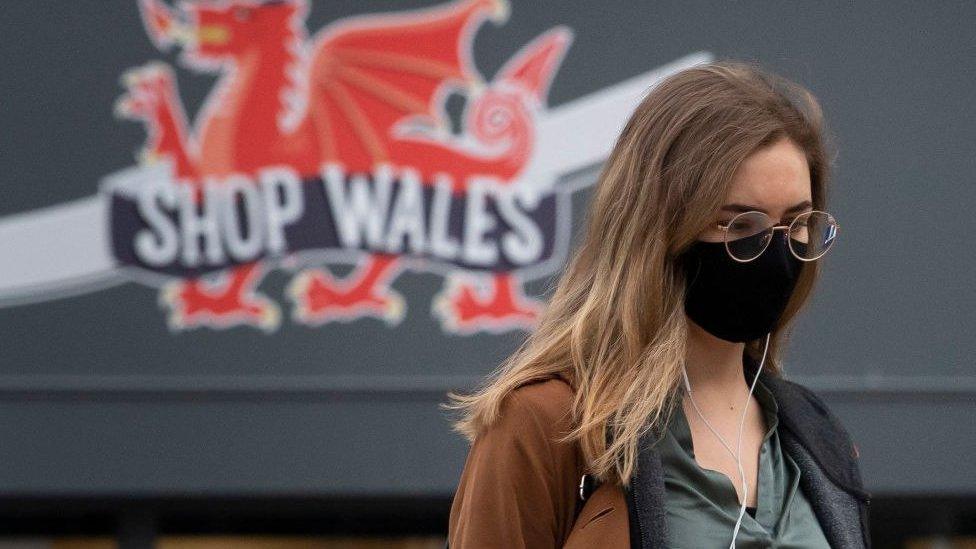
The UK Treasury refused to extend the furlough scheme to cover Wales' firebreak lockdown in November 2020
Wales' first minister made repeated calls for a "predictable rhythm of engagement" during the pandemic.
He told the inquiry earlier this year: "What they lacked was a systematic basis for engagement, and this has long been my complaint about inter-governmental relations in the UK.
"They rely far too often on individual willingness to work in that way, whereas what you need is a robust system of machinery of government which brings people to the table for common interests, whether they want to or not."
Mr Gove said that balancing was important but, in his view, the UK government benefited from bringing in the devolved administrations as early as possible.
He disagreed that devolved nations were just told decisions made by the UK government, rather than being involved in decision-making.
He also revealed that a couple of UK cabinet colleagues "bristled" that the governments of Wales, Scotland and Northern Ireland were involved in some discussions that they were not represented in.
'Generous response'
Covid regulations were brought in under public health legislation which meant that the Welsh government took responsibility for decision-making in Wales after the initial UK-wide lockdown in March 2020.
It led to problems over public health policy being set in Wales but financial levers being controlled by the Treasury in Westminster.
Mr Drakeford complained in November 2020 when the Treasury refused to extend the furlough scheme to cover Wales' firebreak lockdown.
Mr Gove said: "The problem was simple. The devolved administrations understandably wanted more money.
"The case was that they were - that the whole of the United Kingdom - had from the chancellor a generous response.
"Ultimately is the thrust 'does the devolution settlement work?' then it does because the basis on which the exchequer funds the different parts of the United Kingdom is fair."
"How much fruit to eat"
Mr Gove also said there should be some public health scenarios where the UK government could "override" devolved government powers.
He said: "Health is devolved, and public health is devolved. But there is a distinction between two different types of public health intervention.
"On the one hand there is the straightforward public health intervention about keeping ourselves healthier, how much fruit to eat and so on.
"That is quite properly a matter for devolved administrations.
"But when you're dealing with a pandemic, and a pandemic which is raging across one island, Great Britain, then I think there is a case for saying there can and should be certain UK-wide powers exercised at the centre.
"I think it is an open question to draw that distinction between two different types of public health interventions…
"But I do think that the whole question about how you can ensure that the UK government, short of civil contingencies act, can say, look we need to override some of the independent decision-making you might make. I think that's worth considering."

THE AMMANFORD ANARCHIST: One of the most dangerous women in America
FALLOUT: The human nuclear test subjects

- Published28 November 2023
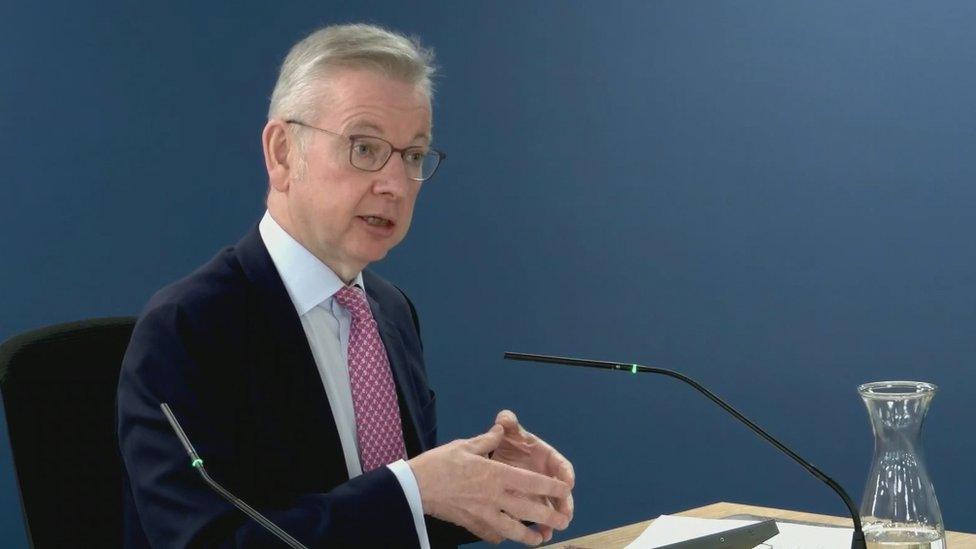
- Published23 November 2023

- Published7 November 2023

- Published1 November 2023
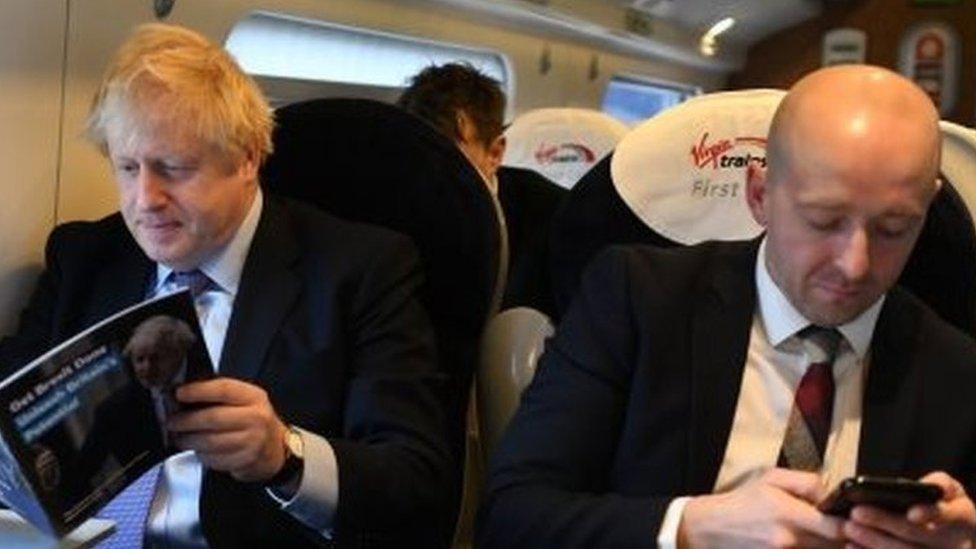
- Published29 August 2023
